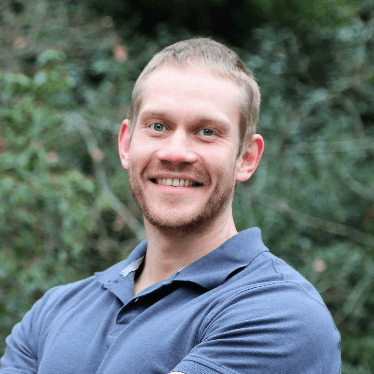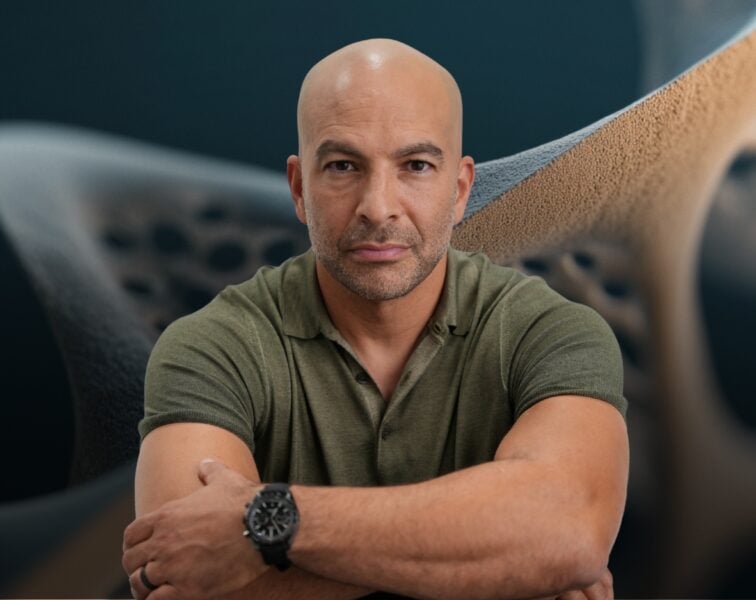Tommy Wood is an Assistant Professor of Pediatrics at the University of Washington, where he studies brain injury and how lifestyle choices and environmental factors contribute to brain health, cognitive function, and chronic disease. In this episode, Tommy delves into the complexities of age-related cognitive decline and explores interventions to counteract it. Drawing from his experience working with Formula 1 drivers, he highlights the connection between cognitive function and the right type of demands and training leading to improvement. Next, he explores the various theories on the different types of pathology in dementia and neurodegeneration. He makes the case that a large fraction of dementia is preventable through lifestyle choices and nutrient status, and provides an in-depth overview of interventions and supplements that support cognitive function. Finally, he provides a comprehensive overview of head injuries, including concussions and traumatic brain injuries (TBIs), discussing symptoms, how to mitigate damage following an incident, and long-term management.
Subscribe on: APPLE PODCASTS | RSS | GOOGLE | OVERCAST | STITCHER

We discuss:
- Tommy’s professional work, unique skill sets, and interests [3:00];
- Age-related decline in cognitive function and memory [5:45];
- Improving brain function with the right level and type of demand [20:15];
- Formula 1 as a model for how to perform under high cognitive demand and how to increase multitasking capacity [31:30];
- Advice for the person reaching middle life looking to mitigate cognitive decline [37:45];
- Tasks and activities that support and improve cognitive function [45:30];
- Neuropathology of Alzheimer’s disease: exploring the role of amyloid and tau proteins [49:30];
- Why Tommy believes dementia research funding should be focused on environmental and lifestyle-based risk factors [1:05:15];
- Benefits of lowering homocysteine and boosting omega-3’s, and evidence-based supplements that support cognitive function [1:09:00];
- A unifying theory of dementia [1:20:45];
- How muscular strength can help with both the prevention and survivability of dementia [1:24:15];
- Head injuries: comparing concussions against traumatic brain injuries (TBIs), mitigating the damage after an incident, and the long-term management of head injuries [1:29:15];
- Is hyperbaric oxygen treatment helpful after a TBI? [1:45:45];
- Supplements that aid recovery from a TBI: creatine, DHA, and choline [1:49:30];
- Demands faced by F1 drivers, and testing interventions to improve their performance [1:57:30]; and
- More.
Get Peter’s expertise in your inbox 100% free.
Sign up to receive An Introductory Guide to Longevity by Peter Attia, weekly longevity-focused articles, and new podcast announcements.
Tommy’s professional work, unique skill sets, and interests [3:00]
- Peter last saw Tommy six months ago at COTA (a Formula 1 facility)
Background on Tommy’s work
- Tommy has a varied experience and background with is useful for what he does, but it can be confusing because people will know him from one arena but not know the work he does elsewhere
- He is an Assistant Professor of Pediatrics and Neuroscience at the University of Washington in Seattle
- Where the majority of his work is in basic animal preclinical research in brain injury
- He looks at ways to treat the injured newborn and pediatric brain
- He also does some work in traumatic brain injury (TBI)
- Before he became a professor, he trained as a medical doctor in the UK
- He worked as a doctor in Central London for a couple of years before he did his PhD in physiology and neuroscience
- Currently, he does not have an active medical license
- But his medical training informs a lot of the work he does
- Alongside that formal training pathway, he spent a lot of time working with athletes
- Tommy was an athlete as a student
- Rowing was his main sport, and he spent time coaching rowers
- Later during his PhD and postdoctoral work, he worked with a company that worked with athletes trying to improve performance (or their overall health) and their longevity in sport
- This was the main thing he saw many people wanting to focus on
- Through that he got to work with Formula 1 drivers via a company called Hintsa
- This is where he does some additional work in athletic performance and health
- Tommy knows Peter has had their good mutual friend Luke Bennett on the podcast before
- Tommy also has interest in long-term cognitive function
- He looks at how the brain responds to injury, to repair or mitigate injury processes
- He’s really interested in how all these things tie together
“What I’m really interested in is how do all these things tie together? How do aspects around lifestyle and the environment affect how your brain functions throughout your entire lifespan?”‒ Tommy Wood
- He does some work with dementia charities in the UK related to the effects of lifestyle and environment on brain function
- He is also a Founding Director of the British Society of Lifestyle Medicine
Tommy is particularly interested in how we can use lifestyle to improve population health
Age-related decline in cognitive function and memory [5:45]
- As we get older you see a pretty linear steady decrease in cognitive function
- Aspects of executive function and working memory
- The exception is historical memory, and that’s probably because of the way that those memories are encoded
- They’re sort of moved from the main memory to storing machinery
- They’re spread throughout the cortex and protected from some of the changes that happen as we get older
- This leads to significant long-term loss of cognitive capacity, which could be called cognitive dysfunction
- You might see an accelerated trajectory where a person goes from what we call mild cognitive impairment (which can be diagnosed with standardized cognitive tests) into frank dementia (of which there are many subtypes)
- The one most people are concerned about is Alzheimer’s disease
- There are probably multiple things that drive both of those paths, but in some individuals, this accelerated decline then ends up in them having the diagnosis of dementia
Let’s give people a real sense of what cognition actually is
- One of the most common things Peter hears from patients is some sort of complaint around memory
- Obviously that’s one component of cognition
- He doesn’t hear many people complain about decreased executive function or processing speed
- Perhaps because most people aren’t pushing those to their limits
- Or because we don’t have readily available tools to internally discern decreases in that
You can define the domains of cognitive function
- 1 – Executive function revolves around complex decision making
- An example for the average person is when you think about saying something, but then you realize it’s a bad idea
- Your prefrontal cortex is jumping in and saying, “That’s a really bad idea”
- 2 – Short-term memory
- 3 – Long-term memory
- 4 – Processing speed
- 5 – Reaction time
- When you talk to individuals about cognitive function, they have their own things that they want to be good at
- It’s very personal
- You can use a standardized battery of tests clinically, and there is usually some aspect of function that is declining over time
- There are aspects that an individual may want to be better at, and they can put focused attention into improving that
- Tommy believes you can improve that at pretty much any stage of life
Memory is something people will mention the most and notice in themselves
- There are two parts to memory, and it’s different in most people, even in the setting of age-related cognitive decline and those who have pathological cognitive decline
- 1 – Encoding that memory in the first place
- The information comes in, and your brain signals through acetylcholine other neurotransmitters to actually say, “This is something that we want to recognize and store.”
- That’s the process that seems to be particularly lost in those with pathological cognitive decline
- That’s why things like cholinesterase inhibitors were and are still used in Alzheimer’s disease, because that helps to bolster some of those encoding processes, through acetylcholine signaling
- A lot of the process starts in the hippocampus, but over time as you get consolidation of these memories, they may get moved around
- Historical memories get shifted throughout the neocortex, which is basically the rest of the outside of the brain
- 2 – Memory retrieval
- The information is in there; this is the process of getting it out
- Retrieval speed seems to slow down with age
- We often think of this as pathological
- But part of it may be that over time you just accumulate more information, and this makes it harder/ take longer to bring out a certain piece of information
- Peter remembers this is the argument that Arthur Brooks made about aging (in episode #226)
- As you add memories, you’re creating volumes in a library, and the more volumes in the library, the longer it takes the librarian to go and get a specific reference
How can we figure out the relative contribution of library size versus librarian speed when it comes to accessing memories?
{end of show notes preview}
Would you like access to extensive show notes and references for this podcast (and more)?
Check out this post to see an example of what the substantial show notes look like. Become a member today to get access.

Tommy Wood, M.D., Ph.D.
Thomas Ragnar Wood earned his Bachelor degree in biochemistry from Cambridge and Medical degree from Oxford. He worked as a junior doctor in London for two years before completing a Ph.D. in Physiology and Neuroscience from the University of Oslo.
Dr. Wood is a Research Assistant Professor of Pediatrics at the University of Washington where he is the Director of Preclinical Research for the Division of Neonatology. Dr. Wood’s research focuses on animal models of premature brain injury and neonatal hypoxic-ischemic encephalopathy with the goal of investigating factors that contribute to brain health, development, and resilience across the lifespan.
Dr. Wood serves as Associate Editor of the Wiley Journal Lifestyle Medicine. He is a past President-elect of Physicians for Ancestral Health. He served as a founding director of the British Society of Lifestyle Medicine, and is currently on the scientific advisory board of Hintsa Performance. Dr. Wood works with a number of digital health companies and charities that focus on how lifestyle and the environment can affect long-term health and chronic disease. Dr. Wood has competed in multiple sports including rowing, CrossFit, powerlifting, and ultra-endurance racing. He has also worked with professional athletes as a performance consultant. Alongside his career in medicine and research, Tommy has published and spoken on multiple topics surrounding functional and ancestral approaches to health, including examining the root causes of multiple sclerosis and insulin resistance. [Physicians for Ancestral Health]
Instagram: @drtommywood
Twitter: @DrRagnar
Podcast: Better Brain Fitness



